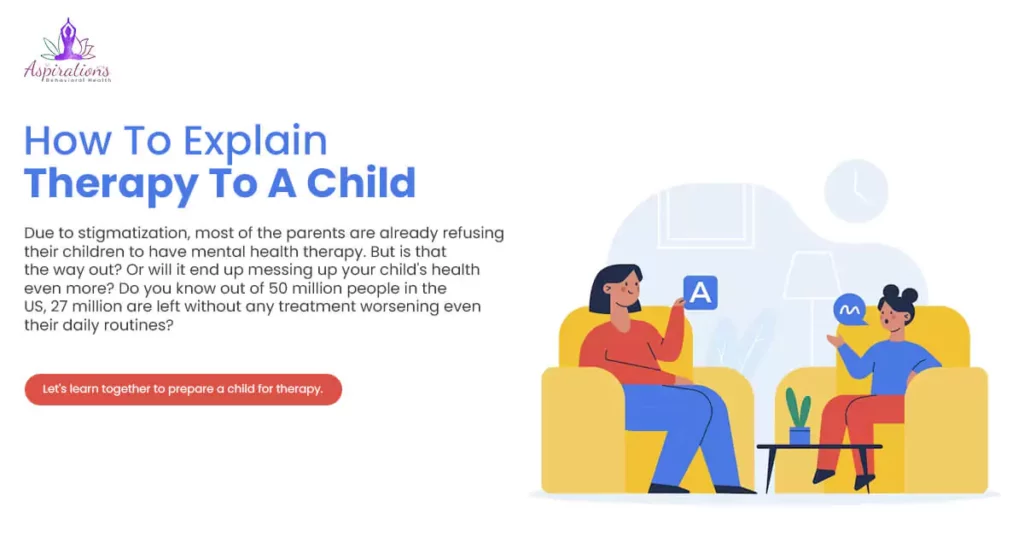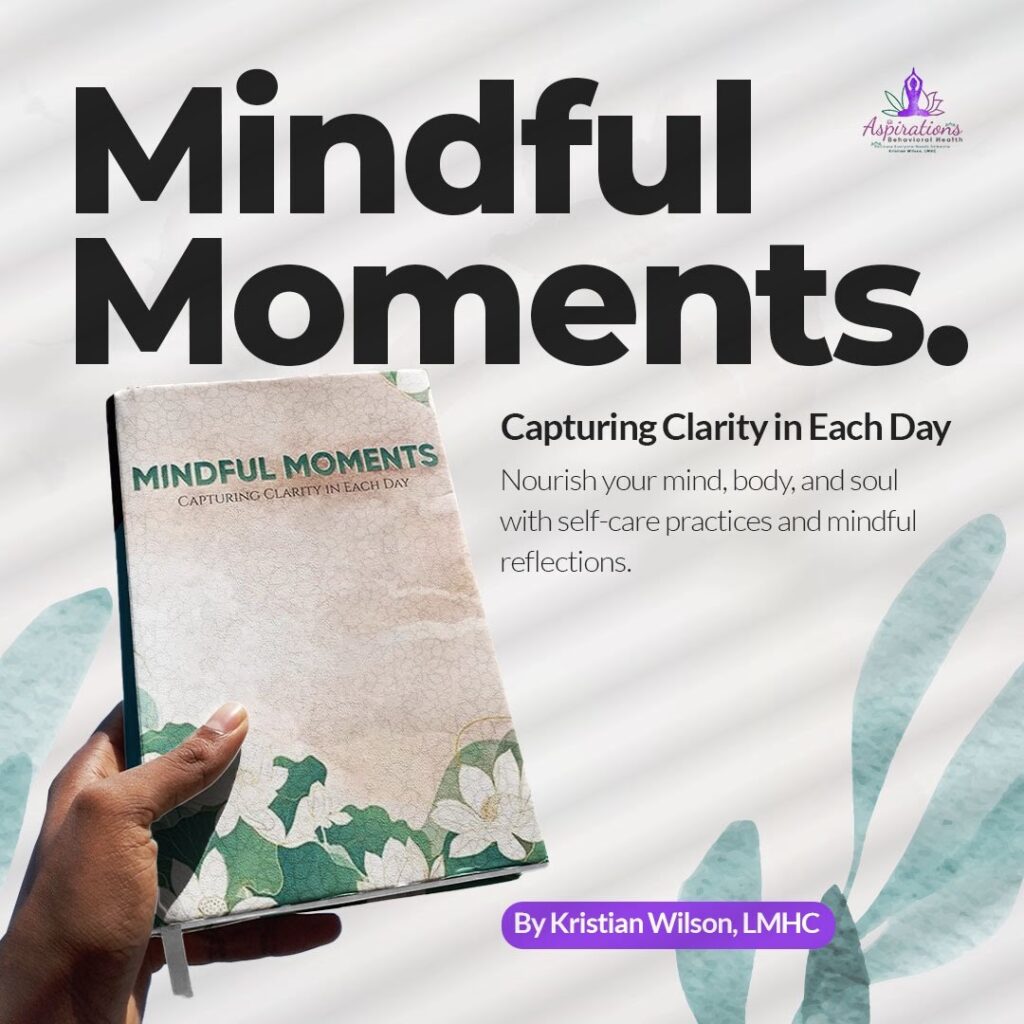Due to stigmatization, most of the parents are already refusing their children to have mental health therapy. But is that the way out? Or will it end up messing up your child’s health even more? Do you know out of 50 million people in the US, 27 million are left without any treatment worsening even their daily routines?
Before deciding to facilitate your child with a therapy session, you must learn how to explain therapy to a child. Always be supportive and kind to the victims of mental disturbance, as these are among the most sensitive. Let’s learn together to prepare a child for therapy.
Explaining Therapy To A Child
Therapy can help people to understand why they think and feel the way they do and how their behaviors are related to their thoughts and feelings. It allows people to develop coping mechanisms for dealing with difficult emotions, stress, and challenging situations.
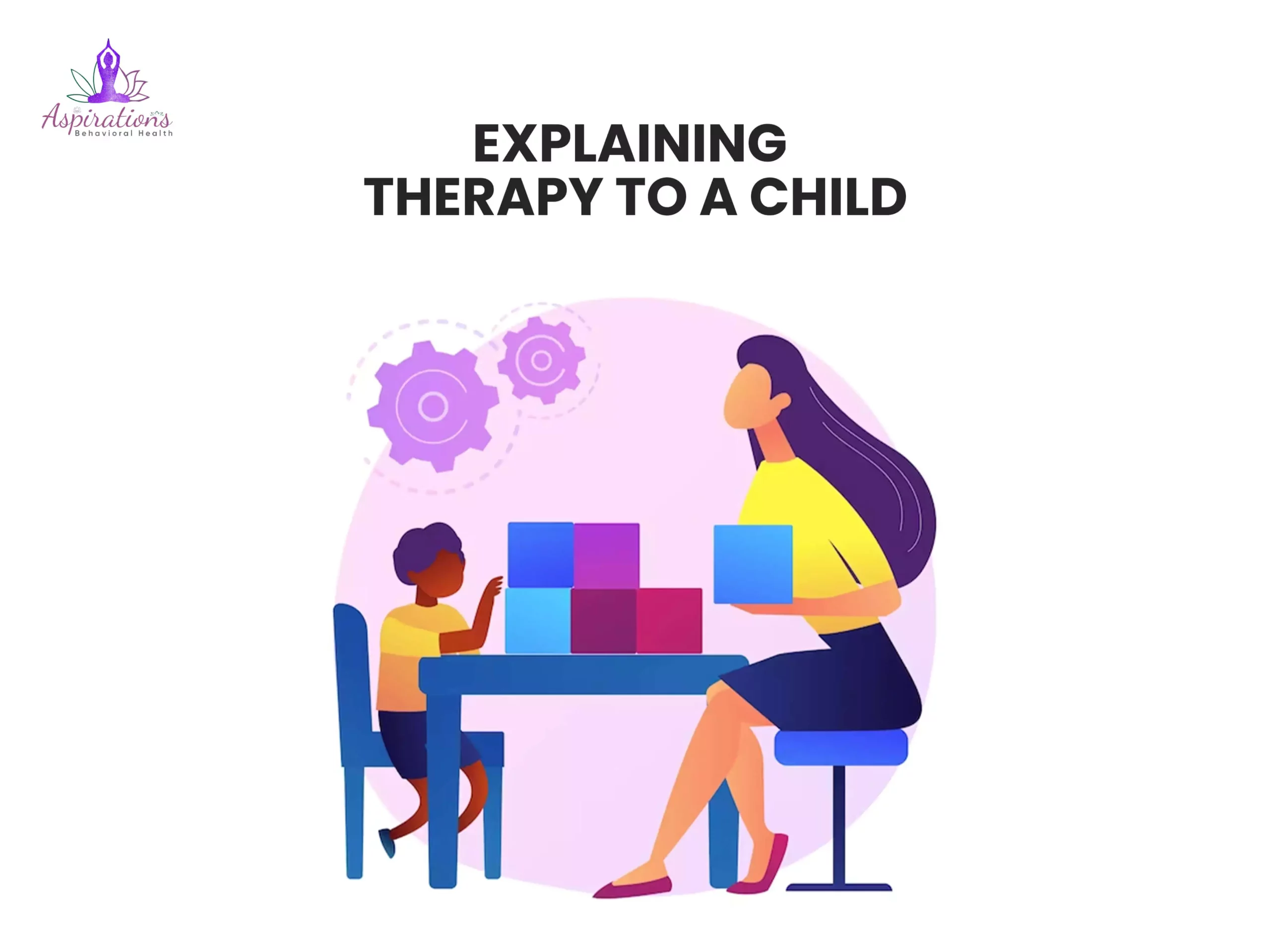
Most of the time, suspects of mental disturbance feel unwanted and unloved. The first thing you can bless your child with is to let him or him know that you love them more than anything else. You can say, “I’m still your mom/dad, and I’m always here for you, no matter what.”
Using appropriate and kind language along with phrases to motivate them can help create a positive image of them. If your child is struggling with something specific, be honest about that. You can say, “I’m considering taking you to therapy because you’ve been struggling with your anger lately.”
If you have ever been to therapy, you can share your experience with your child. This can help them to understand what therapy is like and what to expect. Remember, the most important thing is to be open and honest with your child about therapy. By explaining therapy in a way that they understand, you can help them to get the most out of it.
How Do I Prepare My Child For A Therapy Session?
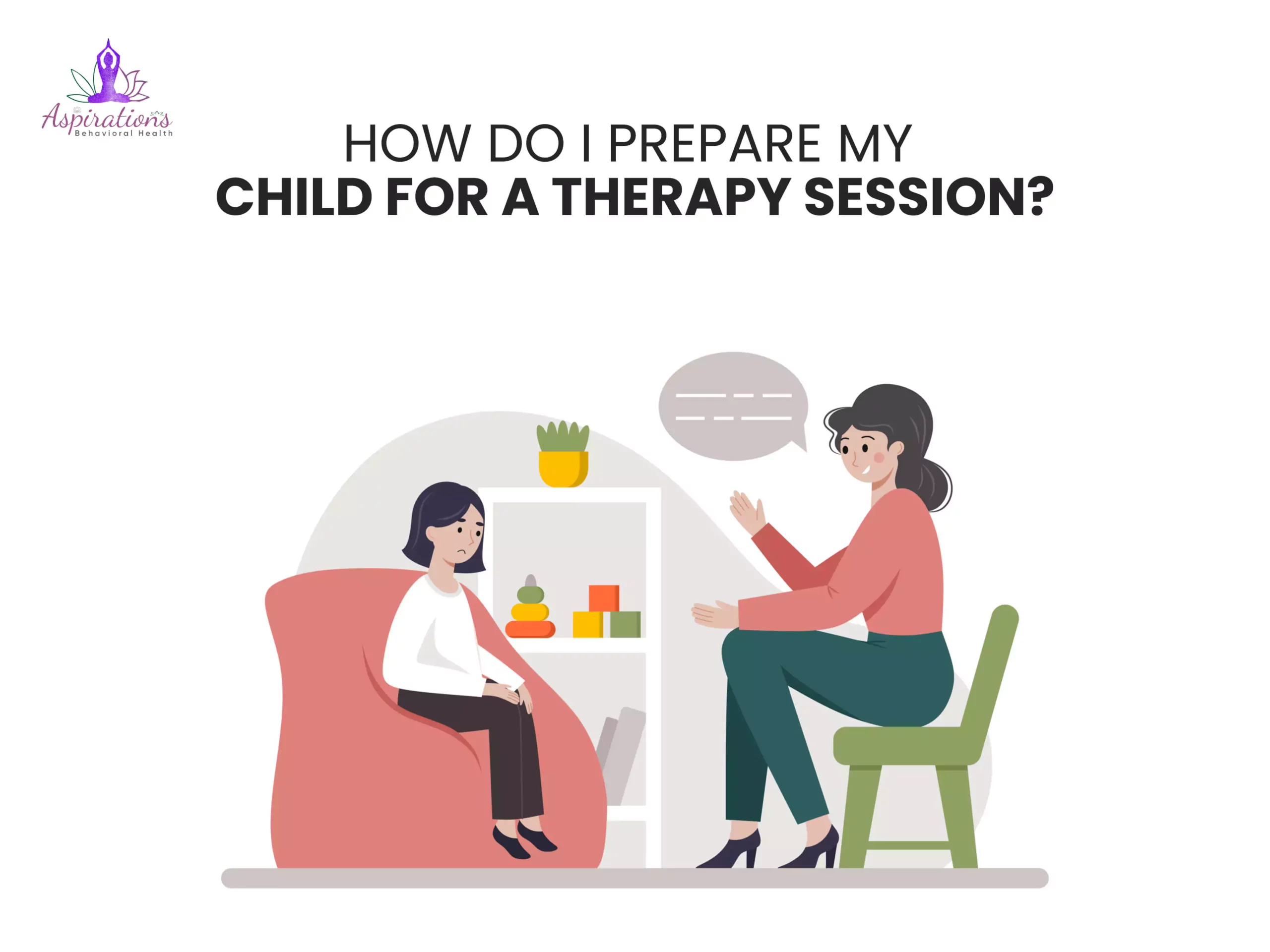
If you want your child to get prepared for the therapy session, you must carefully take some steps. Some children are stubborn enough and won’t accept that they need treatment.
Attending the first counseling session with a child is best suggested to analyze the comfort level. We’ve mentioned a guide to follow for preparing your beloved one.
Make a Conversation at the Right Time:
There is always a perfect time at which things will work out in their best manner. Choose a peaceful period when you and your child can talk privately without interruption.
Use a Simpler Way to Talk:
Ensure you are using the language and way that seems simpler to your toddler. Use terms and concepts that are age and developmentally-appropriate for the youngster. Avoid employing jargon that is difficult to understand.
Initiate the Conversation with a Reason:
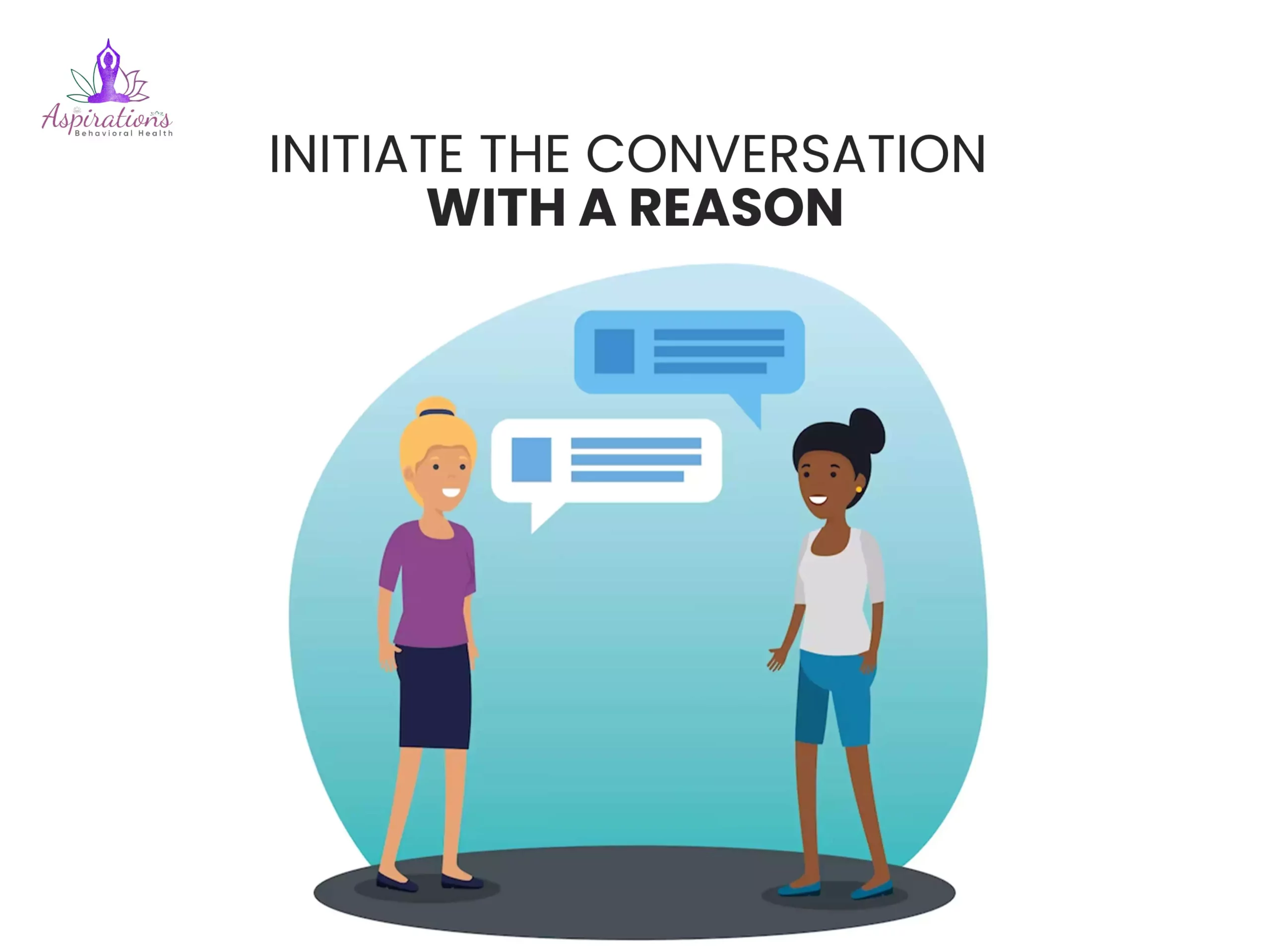
People sometimes experience challenging or overpowering emotions such as grief, rage, or concern. Inform the youngster that therapy is a secure and beneficial place to talk about their feelings and learn ways to feel better.
Ensure Confidentiality:
Assure the youngster that whatever they say in therapy will be kept private and confidential. Explain that the therapist only speaks to others if the kid or someone else is in danger or if the child has given permission.
Emphasize Therapy as a Normal Procedure:
It is a crucial step when you are in the process of preparing your child for therapy. Make it clear to the child that attending treatment is typical and expected. Explain that many people, including children and adults, seek therapy for emotional support and to develop new coping strategies.
Tell Your Child the Role Of a Therapist:
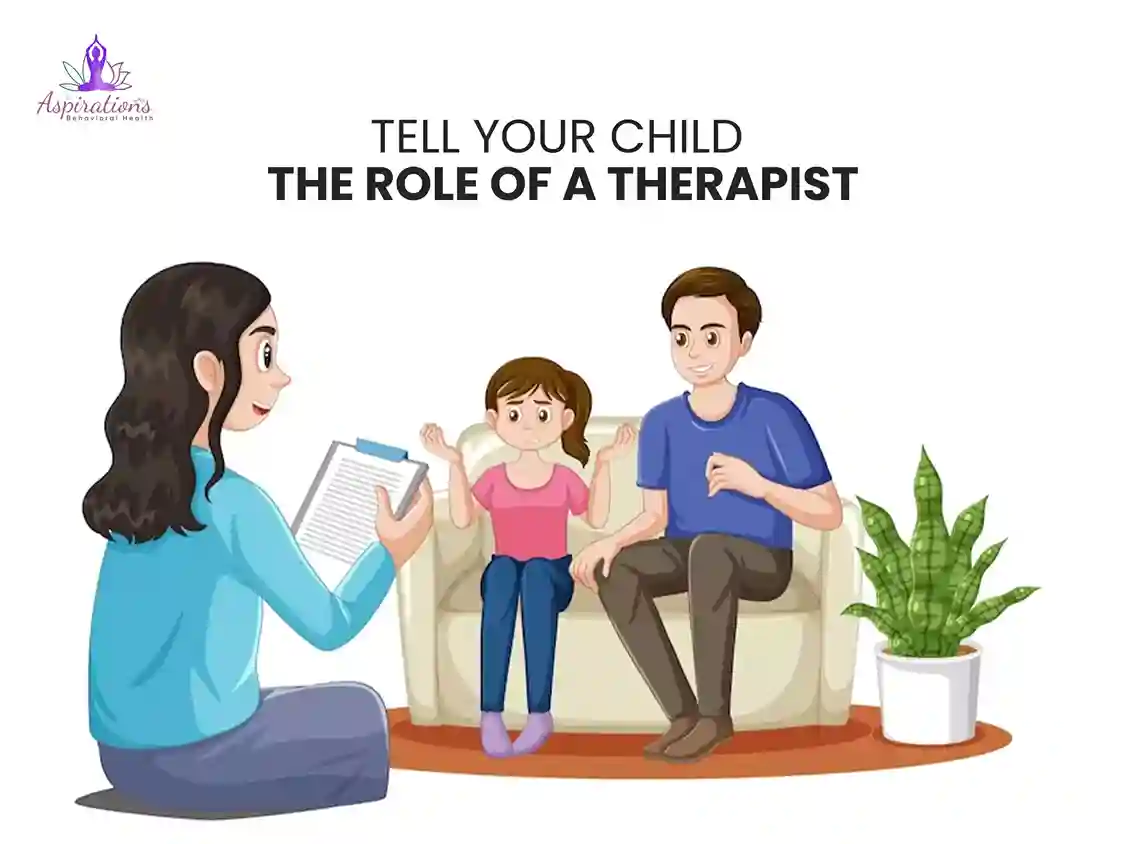
Most children fear doctors, medicine, and treatments, so they are not preparing their minds for a therapist. Explain that a therapist is a qualified professional who helps individuals feel better. They listen, ask questions, and offer advice to assist the youngster in understanding their feelings and developing coping mechanisms.
How Does A Therapist Explain Therapy To A Child?
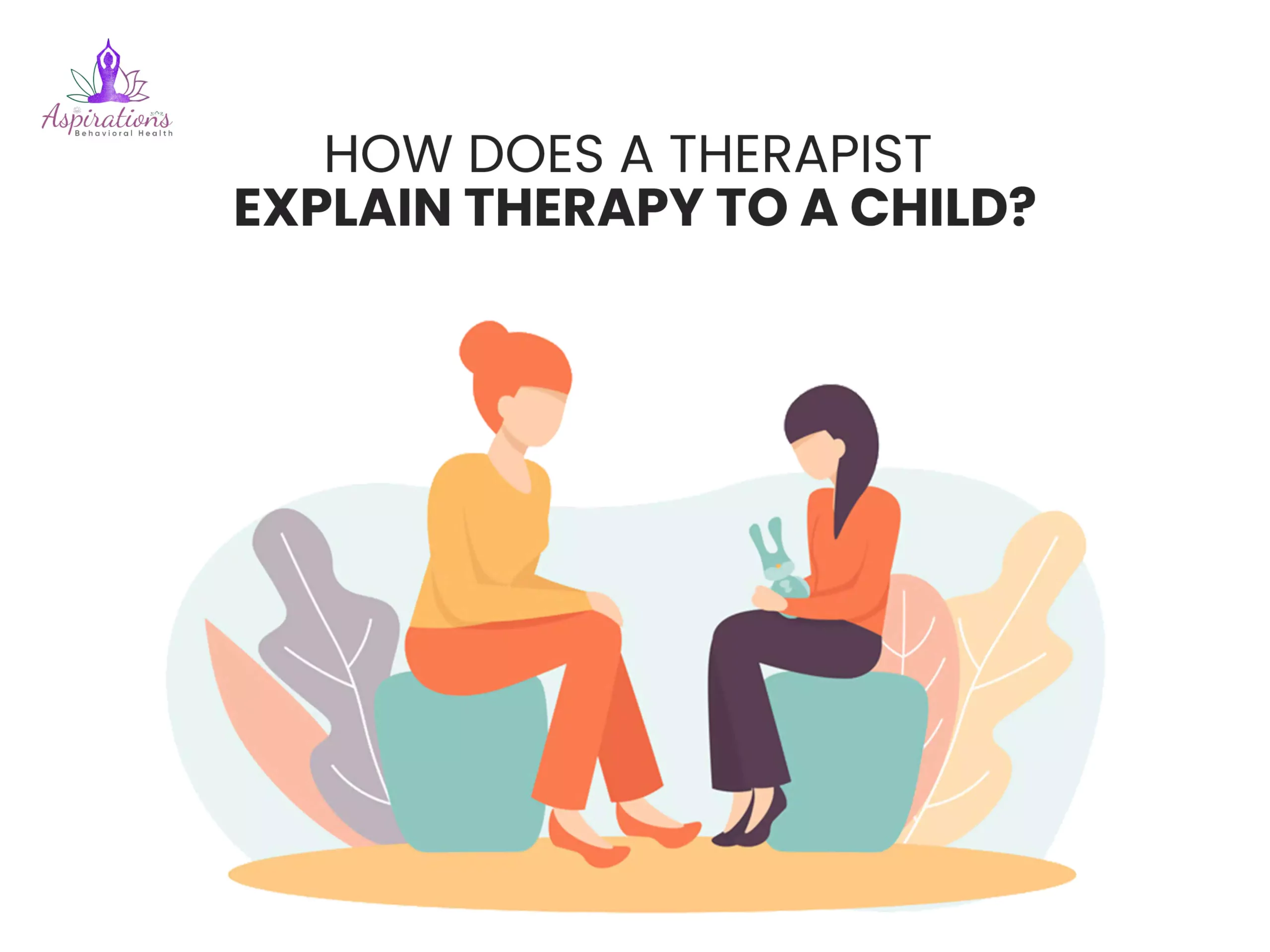
A therapist can explain therapy to a child using a variety of ways and tactics. The therapist creates a warm and loving environment to bond with the child. To build trust and make the youngster feel comfortable, you can converse, ask about the child’s interests, or play a game.
Therapists utilize terminology that is appropriate for the child’s age and comprehension. For example, they may explain therapy to a young child as “talking to a doctor about their feelings.” Metaphors can be used to assist youngsters in understanding treatment. For instance, you could remark, “Therapy is like a safe space where you can talk about whatever you want.”
The therapist describes their position as a facilitator who listens without judgment, offers support, and provides tools and strategies for dealing with emotions. They will explain that the therapist should be seen as a trustworthy friend on the child’s recovery journey.
They are intended to encourage the youngster to communicate any concerns or misgivings regarding the therapy. They attentively listen to the youngster and provide age-appropriate explanations to alleviate anxieties or misunderstandings.
What Pains Do Therapists Help With?
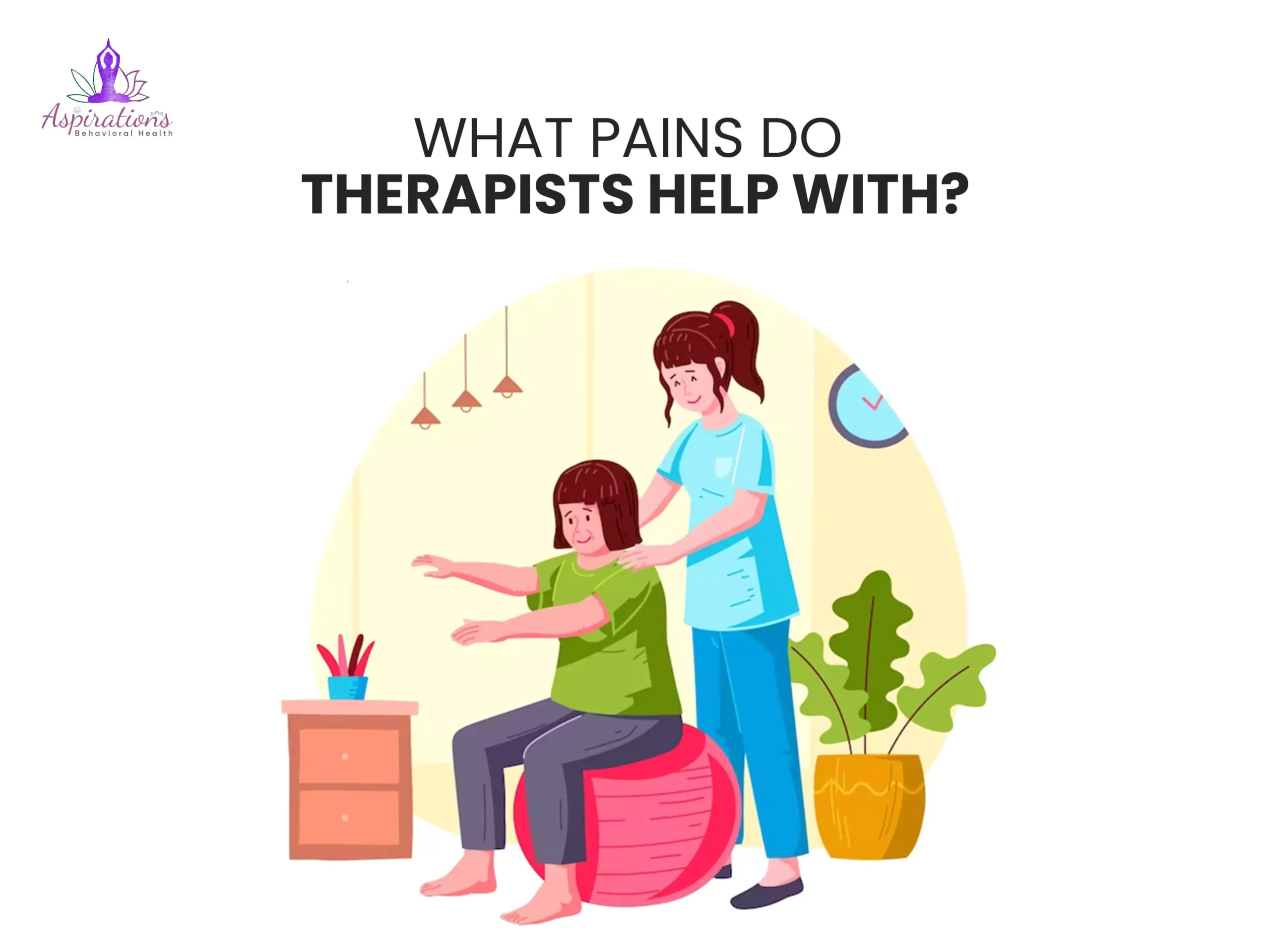
The therapist’s training and expertise determine the type of pain a therapist can assist with. Some therapists specialize in treating clients experiencing emotional, psychological, or bodily suffering. Other therapists use a broader approach and can help people suffering from various pain.
When you’re in pain, finding a therapist who is a good fit for you is critical. You should feel comfortable discussing your discomfort with the therapist and believe the therapy can assist you.
Therapists can assist persons experiencing depression symptoms such as chronic sorrow, loss of interest or joy, changes in eating or sleep patterns, lack of energy, feelings of worthlessness, or suicidal ideation.
Therapists help and counsel persons who have been through traumatic experiences such as physical or sexual abuse, accidents, natural catastrophes, or witnessing violence. They assist clients in processing trauma, managing symptoms, and pursuing healing and recovery.
They assist those grieving the loss of a loved one, a pet, or another significant loss. They provide a sympathetic and understanding setting where individuals may express their thoughts, manage their grief, and find ways to adjust to life without their loved ones.
Therapists assist individuals in developing appropriate stress management methods and establishing resilience. You can learn relaxation techniques, problem-solving skills, time management measures, and healthy coping processes to deal with daily stressors.
Why Do Children Go to a Therapist?
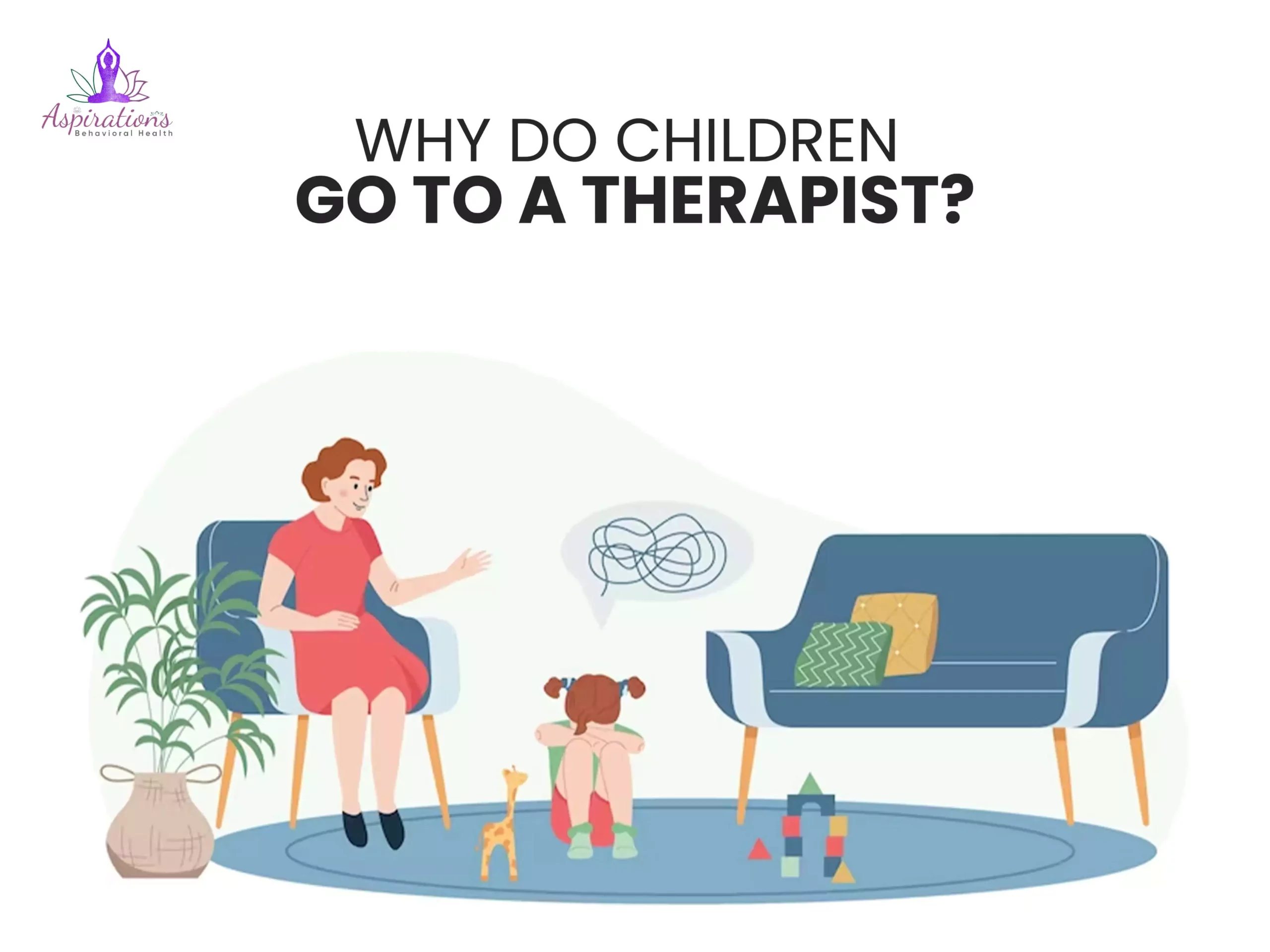
Parents are the first counselors of their children, but sometimes there is a need for more. There are some cases where children or parents fail to gel in completely; here comes the role of a therapist. As a parent, you might have thought about the answer to the question several times “Is my child a good candidate for therapy.” Well, there are some reasons why a child might need therapy by a mental health professional.
The following are such reasons:
- Some children may experience difficulty in managing their emotions, which can manifest as frequent feelings of anger, sadness, fear, or agitation.
- Therapy may aid children who have been through traumatic experiences such as accidents, abuse, or losing a loved one.
- Divorce, separation, relocation, or introducing a new sibling can all be traumatic events for children.
- Therapy may aid children who struggle in school, have difficulties making friends, or experience social challenges.
- Anxiety disorders, depression, ADHD, and autism spectrum disorder can all arise in youngsters.
- When a child loses a loved one or a pet, they may experience sadness and loss.
- Children with developmental delays, learning difficulties, or neurodevelopmental disorders may benefit from therapy to help them grow.
What Are The 7 Signs Your Child Should See A Therapist
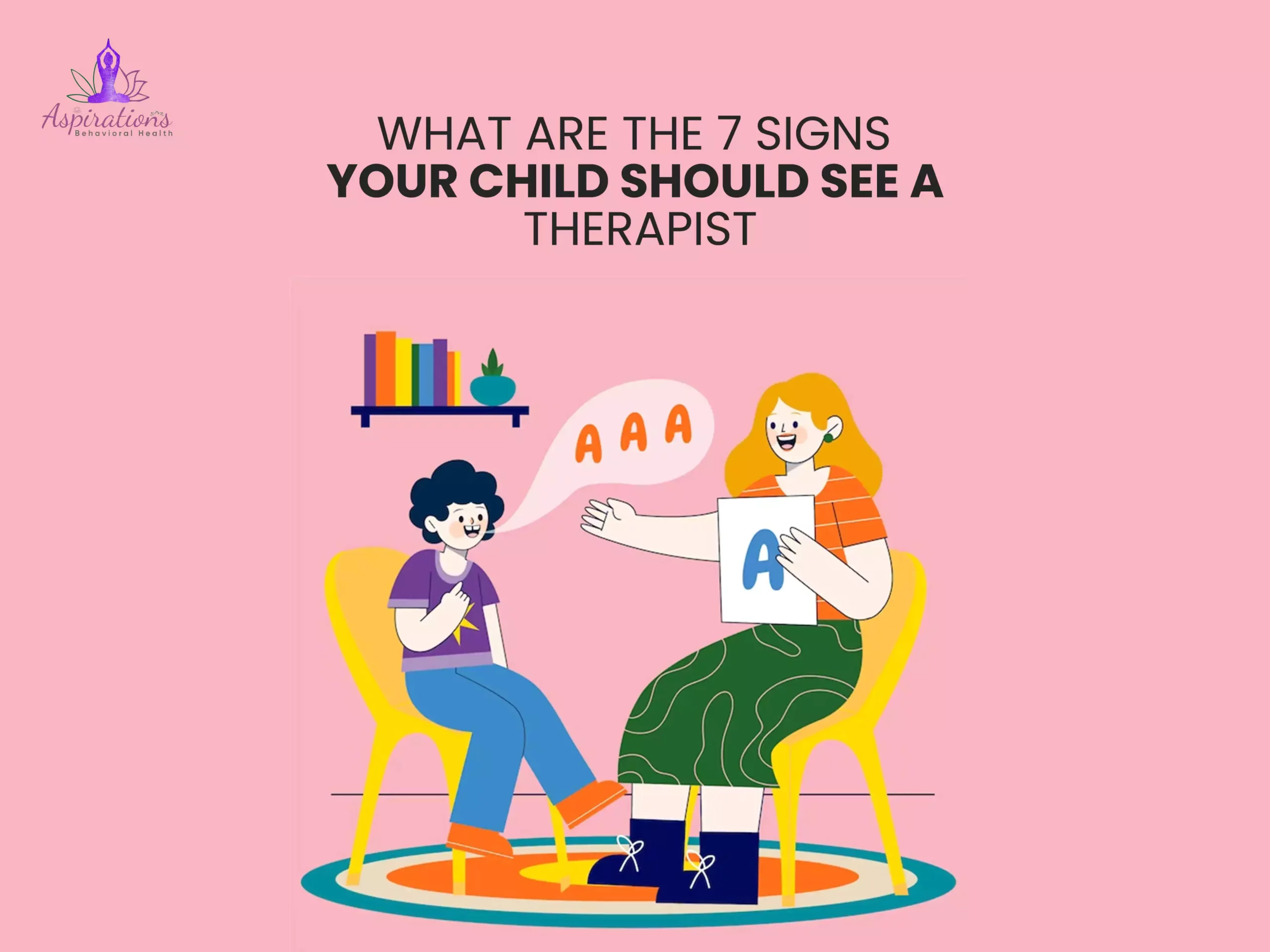
It would help to analyze several signs before preparing yourself and your child for treatment. If present in your child, these signs indicate that they need therapy.
Following are those common signs present.
- When your child is continually overcome with strong emotions such as grief, rage, and worry. Counseling may be beneficial if they are concerned it will hurt their everyday functioning, relationships, or overall well-being.
- Changes in visible and persistent behavior in your child include sudden withdrawal, isolation, violence, self-harm, or risk-taking behavior.
- Therapy can assist if your child has difficulty adjusting to significant life changes, such as a divorce, losing a loved one, relocating, or starting a new school.
- If your child frequently complains of bodily concerns such as headaches, gastrointestinal pain, or other symptoms without medical explanation. You should interpret it as a sign.
- If your child has been the victim of abuse, a terrible accident, a natural disaster, or seen violence, therapy can help them heal.
- If there are changes in academic performance or if the student is reluctant to attend class. If your child’s academic performance suddenly deteriorates, counseling can address any underlying emotional, behavioral, or learning issues that may interfere with their school experience.
What Are The Kid Therapy Activities
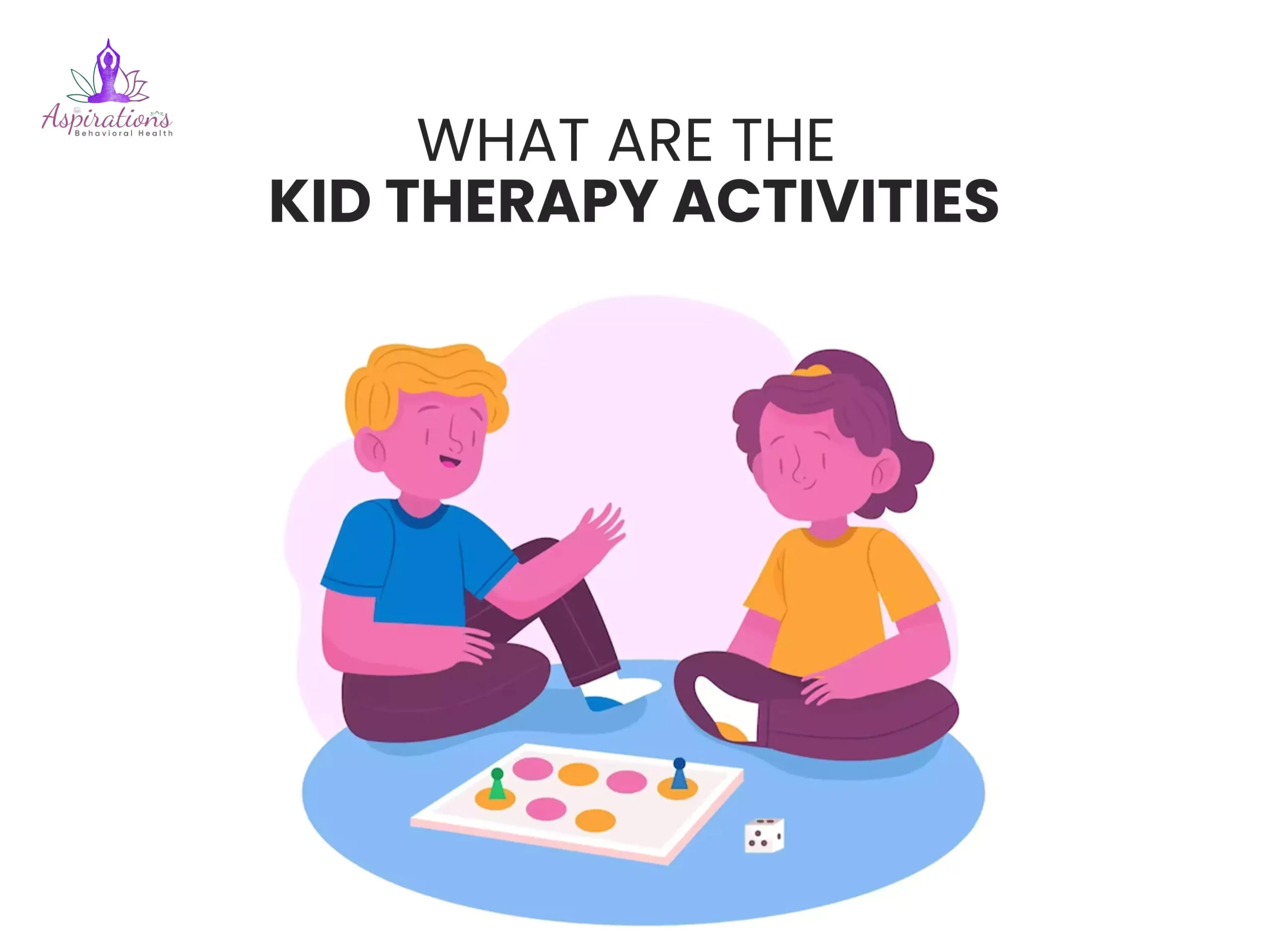
Activities used for kids’ therapy are almost the same as those done for adults, also known as child counseling. Young clients receive emotional and targeted assistance during their sessions like adult clients.
They can concentrate on resolving disagreements, comprehending their thoughts and feelings, and devising creative solutions to everyday difficulties. The only significant distinction between adult and child therapy is ensuring children understand what is happening and why they are not alone.
Therapy activities for children can vary depending on the child’s age, developmental level, and therapeutic goals.
Following are a few of the activities performed in kids’ therapy.
Play Therapy
Play therapy is a widespread practice with children. It allows children to communicate their feelings, thoughts, and experiences playfully. Therapists can supply a variety of toys, craft materials, and games for the kid to participate in and encourage them to act out scenarios, produce artwork, or engage in imaginative play.
Art Therapy
Art therapy helps youngsters express themselves creatively by utilizing a variety of artistic mediums. They may be instructed to sketch, paint, or create collages to express their emotions, experiences, or thoughts. The therapist can stimulate dialogue and interpretation based on the child’s artwork.
Relaxation Techniques
To assist children in handling anxiety, tension, or extreme emotions, therapists can give them age-appropriate breathing exercises, relaxation techniques, or mindfulness exercises. These approaches can help to promote self-regulation and calm.
Cognitive-Behavioral Therapy
CBT exercises are centered on recognizing and treating negative or counterproductive thoughts and behaviors. Using worksheets, thinking journals, or guided dialogues, therapists can assist youngsters in identifying and reframing their ideas more positively and realistically.
Sensory-based Therapy
Sensory activities can be integrated by therapists for sensory-sensitive children who have sensory processing issues. To enhance self-regulation and sensory integration, sensory toys, tactile materials, movement exercises, or activities that excite different senses might be used.
How Do I Select the Right Therapist for My Kid?
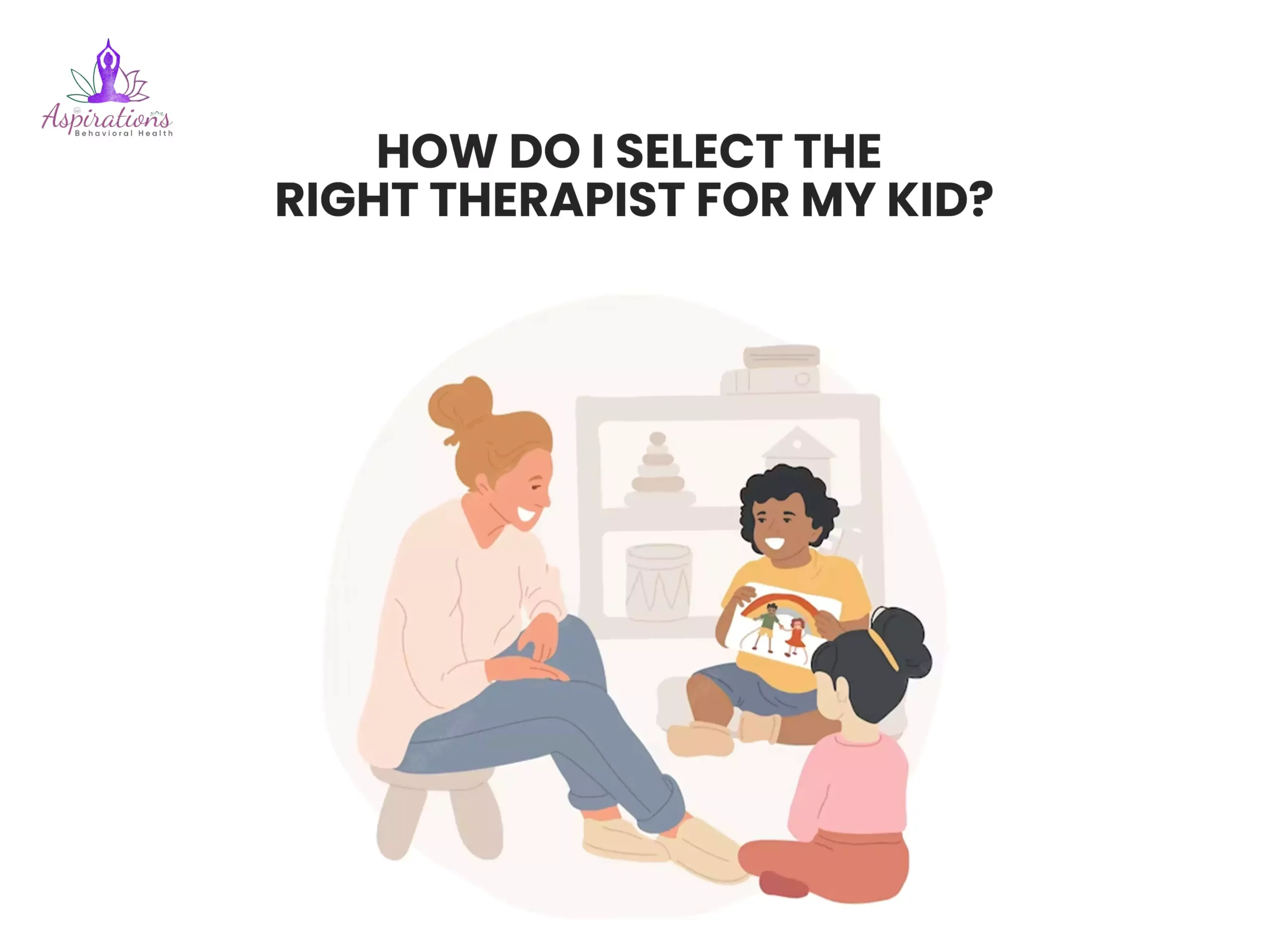
First, you must ask for recommendations from your kid’s pediatrician. They will give righteous suggestions according to the needs and conditions of your child. Before you invest your money, you must do little research to have your hands on the best therapy providers.
In that case, Aspirations Health can help you get the most suitable therapy options for your kid’s condition. We offer every range from family therapy to individual therapy. Book your slots now before it’s too late Click here.
Conclusion
Therapy can be an excellent way for children to learn how to cope with difficult emotions, improve their relationships, and reach their full potential. However, it can be challenging to explain therapy to a child in a way that they will understand. We suggest parents involve in parent-child activity therapy, which will increase their bond with the kids. In this way, you can easily convince them to adopt therapy.
As providers of various therapies, we suggest parents attend the first counseling session with a child to understand what a child wants clearly. We hope you find our guide mentioning how to explain therapy to a child helpful and informational.


